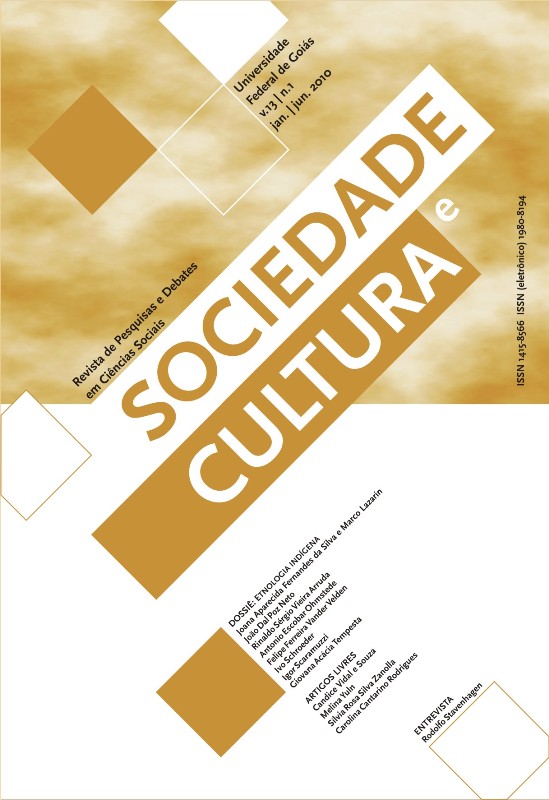Borders and identities: the Manchineri and the Jaminawa in the triple border Brazil-Bolivia-Peru
DOI:
https://doi.org/10.5216/sec.v13i1.11171Keywords:
Manchineri, Jaminawa, borders, identity, nation state, ethnicity.Abstract
This article deals with the vicissitudes of people known today as Manchineri and Jaminawa, inhabitants of border regions of the department of Pando, in Bolivia, Madre de Dios in Peru and Acre state in Brazil. It seeks to trace their connections and the relevance of their historical identity as people of Arawak and Pano linguistic and cultural affiliation, to point the process of involvement by the expansion of the national societies of Bolivia, Peru and Brazil, driven by the exploitation of rubber in the region, and finally to show their presently defined political identity and their conditions of life that were shaped by these processes. But even if it is shaped by the involvement and the standardizations of the national territory allocated at national borders, imposing landmarks “legitimate” for the life of its inhabitants, we point out how these indigenous people are intent on equipping try to use these legal and sociocultural parameters that were intended to subdue them.
Downloads
Downloads
Published
How to Cite
Issue
Section
License
Authors who publish in this journal agree to the following terms:
- Authors retain the copyright and grant the journal the right of first publication, the work being simultaneously licensed under the Creative Commons Attribution License, which allows the sharing of the work with acknowledgment of authorship and of the initial publication in this journal;
- Authors are authorized to enter into additional contracts separately, for non-exclusive distribution of the version of the work published in this journal (eg, publishing in an institutional repository or as a book chapter), with acknowledgment of authorship and of the initial publication in this journal;
- Authors are allowed and encouraged to post and distribute their work online (eg, in institutional repositories or on their personal page) at any point before or during the editorial process, as this can bring productive change as well as increases the impact and the citation of the published work (see O Efeito do Acesso Livre).



